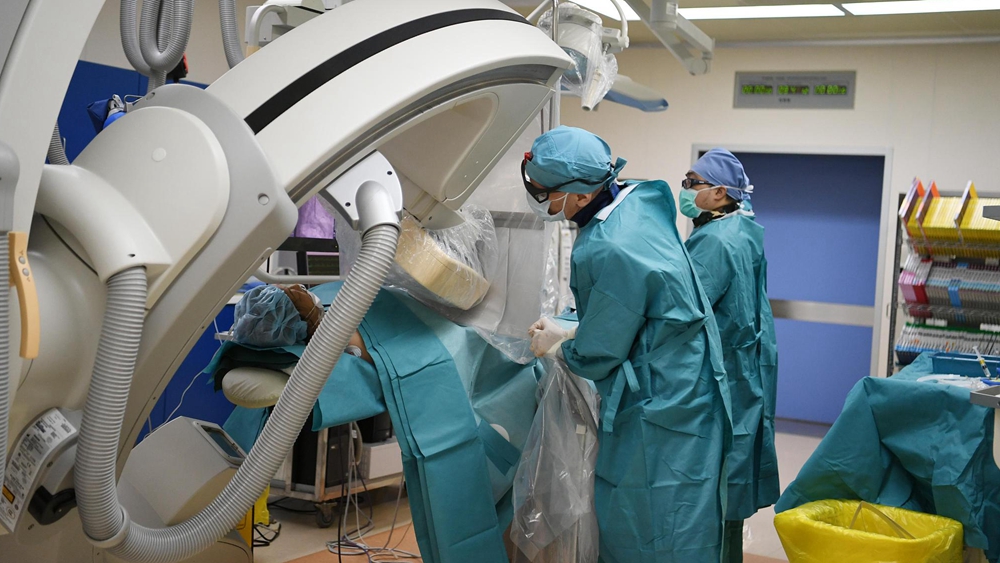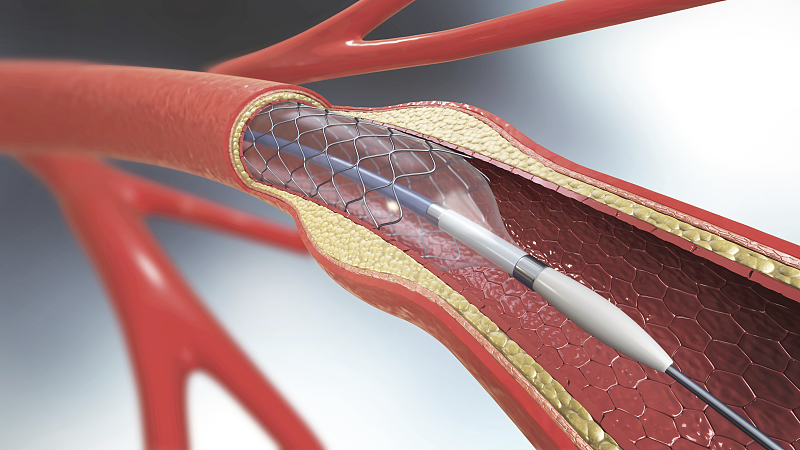
A surgery is underway at a hospital in Changchun City, northeast China's Jilin Province, May 29, 2020. /CFP
A surgery is underway at a hospital in Changchun City, northeast China's Jilin Province, May 29, 2020. /CFP
Chinese patients would be able to access affordable medical care expenditures in the coming years, with the government taking steps towards lowering the price of medical devices.
In this direction, the Hebei Provincial Healthcare Security Administration, on December 8, solicited public opinions on a provincial-level procurement plan on two inexpensive medical devices--indwelling needle and single-use infusion set, the Chinanews.com reported on Thursday.
Public health institutions, including military medical organizations in the province in north China, are primary purchasers, according to the procurement plan, stressing that the higher discount the pharmaceutical companies offer on the two medical devices, the bigger share they will enjoy in the provincial government procurement while the highest discount gets the largest quantity of procurement.
This is the first provincial-level procurement on inexpensive medical devices in China. There are already dozens of city-level procurement on this kind of medical supplies.
Inexpensive medical devices, including medical sanitary materials, surgical dressings, bandages and medical disinfectants, cost much less than expensive medical devices, including coronary stents and heart pacemakers. Still, they are widely used at health institutions.
The domestic market for inexpensive medical devices was worth 77 billion yuan ($12 billion), up more than 20 percent year-on-year, according to the latest Blue Book of Medical Device Industry in China, released by Eshare, an online service provider in the industry.
In the form of bulk buying, the procurement program of inexpensive medical devices reportedly has drawn significant discounts from manufacturers. For example, the bulk-buying of inexpensive medical consumables in 11 cities in north China's Shanxi Province saw an average decrease of more than 55 percent, which was expected to save more than 100 million yuan ($15 million) in 2020.
It's uncertain whether the bulk-procurement of inexpensive medical consumables will change from the city-level to provincial-level as Hebei became the first case.

A coronary stent is used in a coronary heart diseasesurgery. /CFP
A coronary stent is used in a coronary heart diseasesurgery. /CFP
At present, the provincial-level bulk-purchase mostly targets expensive medical devices. The practice began in the latter half of 2019 after the General Office of the State Council released a reform plan on cutting the prices of expensive medical devices to reduce the financial burden on patients in July 2019.
East China's Anhui and Jiangsu Provinces are the first two in implementing the reform.
And the first national-level bulk buying of expensive medical devices began in north China's Tianjin Municipality in early November, where the price of each coronary stent decreased from 13,000 yuan ($1,988) to about 700 yuan ($107).
"The huge reduction of coronary stent price will undoubtedly bring more hope to patients with myocardial infarction," Hu Dayi, director of the Vasculocardiology Department, Peking University People's Hospital, was quoted by CCTV Business as saying.
However, Hu worried that some medical manufacturers would raise prices of certain medical devices under the guise of innovation to offset the profits they lost in the price deduction of the corona stents.
To avoid this, National Health Security Administration has built a nation-wide information base on the transaction price and transaction volumes of the medicines and medical devices in hospitals in 2019. This was said to provide data support to coordinate the costs of different drugs and medical devices.
According to some industry insiders, the bulk-buying of medical devices led by governments will eliminate pharmaceutical industry problems, including doctors receiving kick-backs after recommending certain products from certain manufacturers.

